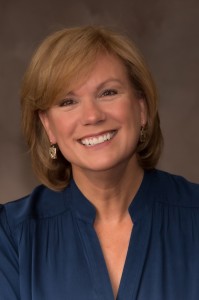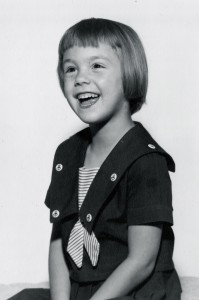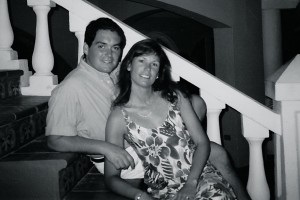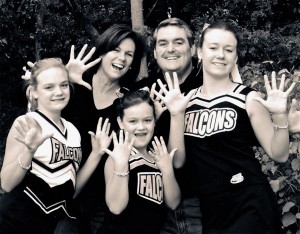
Lori Timney

Lori Timney at age of 4.

Lori and Mike Timney on their honeymoon.

Lori and Mike with their daughters in 2010.
 In 2014, Lori was honored to be invited to become a founding member of a newly formed Deaf and Hard of Hearing Community Advisory Committee at Meridian Health. The basic goal of this committee is to make suggestions and find ways to improve the quality of the services for the people who are deaf, hard of hearing, deaf-blind, and late-deafened at the hospitals, clinics, nursing rehabilitation centers managed by Meridian Health here in New Jersey. Also, during the years 2014 to 2017, Lori voluntarily worked for New Jersey Deaf Senior Housing, Inc., which was later renamed to New Jersey Deaf Housing, Inc.
Having already achieved college degrees in the field of computers, Lori still likes to tinker a bit with gadgets. In 2013, she completed an on-line course to further improve her web design skills. Yes, this website is designed and developed by her.
Over the years, Lori has given presentations About Being Deaf at various locations. In these presentations, she explains deafness, the challenges of being deaf, various technological devices to survive in a world full of sounds, and Deaf Culture.
Also, Lori used to coordinate American Sign Language courses for people who want to learn to express themselves visually and to communicate with the deaf people.
That’s Lori Timney in a nutshell!
In 2014, Lori was honored to be invited to become a founding member of a newly formed Deaf and Hard of Hearing Community Advisory Committee at Meridian Health. The basic goal of this committee is to make suggestions and find ways to improve the quality of the services for the people who are deaf, hard of hearing, deaf-blind, and late-deafened at the hospitals, clinics, nursing rehabilitation centers managed by Meridian Health here in New Jersey. Also, during the years 2014 to 2017, Lori voluntarily worked for New Jersey Deaf Senior Housing, Inc., which was later renamed to New Jersey Deaf Housing, Inc.
Having already achieved college degrees in the field of computers, Lori still likes to tinker a bit with gadgets. In 2013, she completed an on-line course to further improve her web design skills. Yes, this website is designed and developed by her.
Over the years, Lori has given presentations About Being Deaf at various locations. In these presentations, she explains deafness, the challenges of being deaf, various technological devices to survive in a world full of sounds, and Deaf Culture.
Also, Lori used to coordinate American Sign Language courses for people who want to learn to express themselves visually and to communicate with the deaf people.
That’s Lori Timney in a nutshell!




 In 2014, Lori was honored to be invited to become a founding member of a newly formed Deaf and Hard of Hearing Community Advisory Committee at Meridian Health. The basic goal of this committee is to make suggestions and find ways to improve the quality of the services for the people who are deaf, hard of hearing, deaf-blind, and late-deafened at the hospitals, clinics, nursing rehabilitation centers managed by Meridian Health here in New Jersey. Also, during the years 2014 to 2017, Lori voluntarily worked for New Jersey Deaf Senior Housing, Inc., which was later renamed to New Jersey Deaf Housing, Inc.
Having already achieved college degrees in the field of computers, Lori still likes to tinker a bit with gadgets. In 2013, she completed an on-line course to further improve her web design skills. Yes, this website is designed and developed by her.
Over the years, Lori has given presentations About Being Deaf at various locations. In these presentations, she explains deafness, the challenges of being deaf, various technological devices to survive in a world full of sounds, and Deaf Culture.
Also, Lori used to coordinate American Sign Language courses for people who want to learn to express themselves visually and to communicate with the deaf people.
That’s Lori Timney in a nutshell!
In 2014, Lori was honored to be invited to become a founding member of a newly formed Deaf and Hard of Hearing Community Advisory Committee at Meridian Health. The basic goal of this committee is to make suggestions and find ways to improve the quality of the services for the people who are deaf, hard of hearing, deaf-blind, and late-deafened at the hospitals, clinics, nursing rehabilitation centers managed by Meridian Health here in New Jersey. Also, during the years 2014 to 2017, Lori voluntarily worked for New Jersey Deaf Senior Housing, Inc., which was later renamed to New Jersey Deaf Housing, Inc.
Having already achieved college degrees in the field of computers, Lori still likes to tinker a bit with gadgets. In 2013, she completed an on-line course to further improve her web design skills. Yes, this website is designed and developed by her.
Over the years, Lori has given presentations About Being Deaf at various locations. In these presentations, she explains deafness, the challenges of being deaf, various technological devices to survive in a world full of sounds, and Deaf Culture.
Also, Lori used to coordinate American Sign Language courses for people who want to learn to express themselves visually and to communicate with the deaf people.
That’s Lori Timney in a nutshell!








